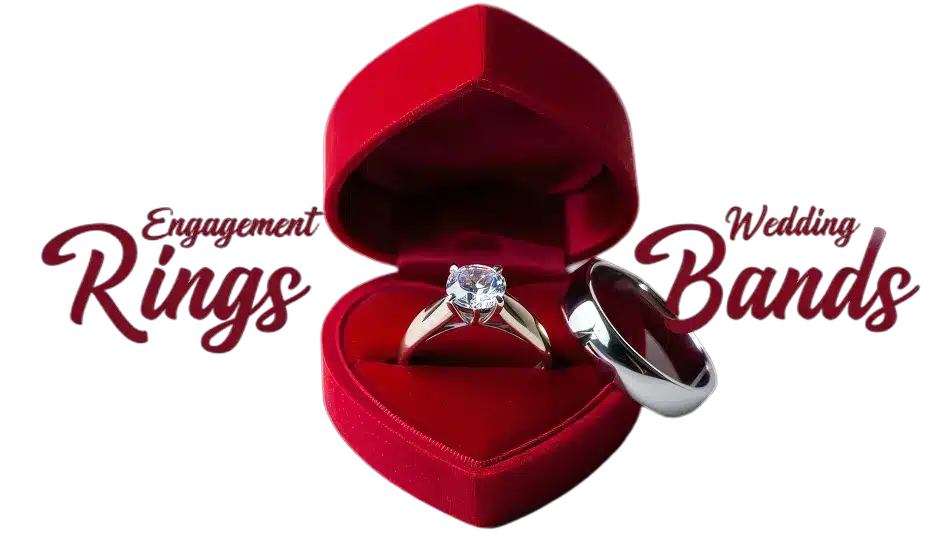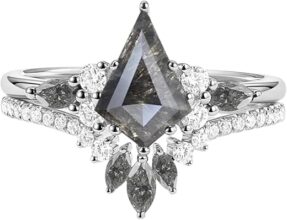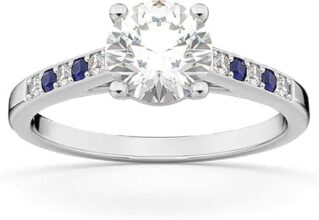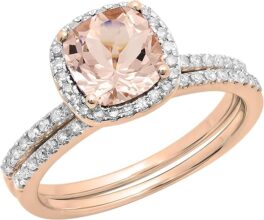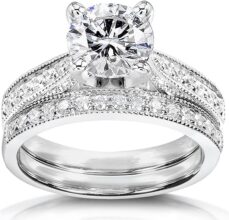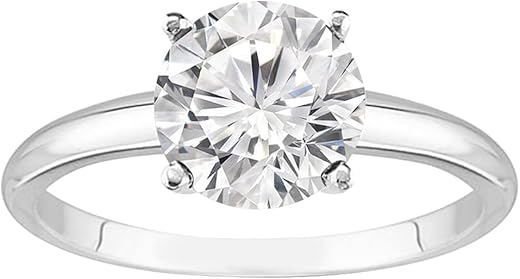
Are you ready to discover why choosing between lab-grown and natural diamonds might be the most surprising twist in your engagement story?
Choosing an engagement ring is no small feat! As you stand on the thrilling precipice of love, you’re faced with a pivotal choice: lab-grown or natural diamonds? In this showdown, we’ll compare two standout options to help you make the best decision for your forever.
Eco-Friendly Choice

This lab-grown diamond ring offers excellent quality at a competitive price, making it a fantastic choice for those seeking a sustainable engagement ring option. With high customer satisfaction ratings, it’s a solid investment for your special moment.
Timeless Elegance

This natural diamond engagement ring boasts exceptional quality and timeless design, making it a cherished choice for those who value the tradition of natural stones. Its high customer satisfaction and craftsmanship make it a worthy investment in your love story.
Lab Grown Ring
Natural Diamond Ring
Lab Grown Ring
Natural Diamond Ring
Lab Grown Ring
Natural Diamond Ring
Understanding Lab Grown Diamonds
Lab-grown diamonds are a fascinating innovation in the jewelry industry. These diamonds are created in controlled environments using advanced technology that replicates the natural process of diamond formation.
How Lab Grown Diamonds are Created
The two primary methods for creating lab-grown diamonds are High Pressure High Temperature (HPHT) and Chemical Vapor Deposition (CVD). Both methods yield diamonds that are chemically, physically, and optically identical to natural diamonds.
Benefits of Choosing Lab Grown
When considering a lab-grown diamond, you’ll find several compelling benefits:
Grading of Lab Grown Diamonds
Lab-grown diamonds are graded using the same criteria as natural diamonds (the 4 Cs—cut, color, clarity, and carat weight). The 1 to 6 Carat Lab Grown 4 Prong Solitaire boasts an impressive E-F color range and VS2-SI1 clarity, ensuring you’re choosing a high-quality stone.
With these insights, you can see why lab-grown diamonds are fast becoming a popular choice for engagement rings!
The Allure of Natural Diamonds
Natural diamonds have captivated hearts for centuries, with a timeless allure derived from their stunning beauty and unique history. Formed over millions of years deep within the Earth, each diamond tells a tale of pressure, heat, and time that adds to its authenticity.
The Four Cs of Diamonds
When it comes to evaluating diamonds, the 4 Cs—cut, color, clarity, and carat weight—are crucial in determining their quality and value:
Why Choose a Natural Diamond?
Investing in a natural diamond, like the exquisite 1-3.5 Carat Cushion in 14K White Gold (priced around $1,350), not only symbolizes love and commitment but also provides long-term value. Natural diamonds often hold better resale value, making them a worthwhile investment. Additionally, their unique imperfections and rich history give each stone a character that lab-grown diamonds simply can’t replicate.
As you weigh your options, remember that the emotional and historical significance tied to natural diamonds continues to enchant couples around the world.
Comparing Price and Value
When it comes to engagement rings, price can often be a decisive factor. Let’s break down the cost differences between lab-grown and natural diamonds, helping you understand what you can expect for your budget.
Lab-Grown Diamonds
For the 1 to 6 Carat Lab Grown 4 Prong Solitaire (priced around $625), you’re getting exceptional value. This ring features:
Natural Diamonds
On the other hand, the 1-3.5 Carat Cushion Natural Diamond Ring retails for about $1,350. Here’s what you get:
Summary of Costs
| Diamond Type | Price | Carat Range | Color & Clarity |
|---|---|---|---|
| Lab Grown | $625 | 1 to 6 | E-F, VS2-SI1 |
| Natural | $1,350 | 1-3.5 | G-H, SI1-SI2 (with a 0.5 carat center) |
As you weigh these options, consider the impact of carat weight, clarity, and cut on the overall price. Your choice will depend not only on what fits your budget but also on the value you assign to each type of diamond. Choose wisely!
Feature Comparison
Environmental and Ethical Considerations
When choosing between lab-grown and natural diamonds, it’s essential to consider their environmental impact and ethical implications.
The Environmental Cost of Diamond Mining
Natural diamond mining is notorious for causing significant environmental damage. This includes:
In contrast, lab-grown diamonds are produced in controlled environments, minimizing their ecological footprint:
Ethical Implications of Diamond Sourcing
One of the major concerns with natural diamonds is the risk of “conflict diamonds,” which may fund violence or exploit vulnerable populations in some regions. Lab-grown diamonds eliminate this concern, as they are created in conflict-free environments.
By choosing lab-grown options like the 1 to 6 Carat Lab Grown 4 Prong Solitaire, you can enjoy peace of mind knowing that your engagement ring supports ethical practices and sustainability.
To sum it up, opting for lab-grown diamonds not only contributes to a greener planet but also aligns with socially responsible values, making it an increasingly appealing choice for the modern consumer.
Final Verdict: Which Diamond is Right for You?
In this engagement ring showdown, the 1 to 6 Carat Lab Grown Solitaire edges out with its affordability and eco-friendly appeal. However, if you’re leaning towards timeless elegance and high resale value, the Natural Diamond Ring is undeniably the choice. Which ring aligns with your ideals of love and commitment?


